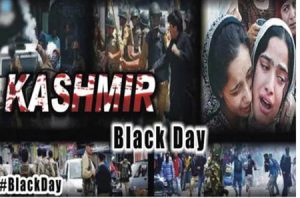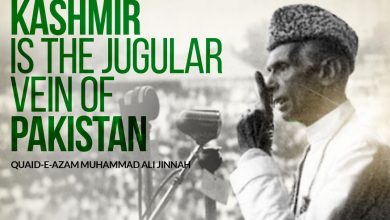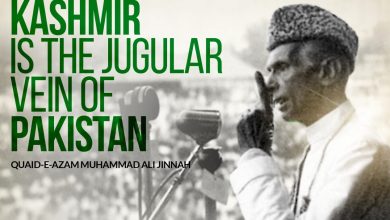

October 27, 1947, is one of the anguish days in Kashmir’s history. On this day, Indian troops landed in Srinagar, prefacingan occupation that has lasted more than 76
years. For the people of Kashmir, this was more than just a military invasion; it was a perfidy of their right to choose their own destiny. The promise of self-determination, as granted by international law, remains ill-equipped to this day.
The conflict in Kashmir dates back to 1947, when the subcontinent was segregated into India and Pakistan. Kashmir, a predominantly Muslim territory, was expected to join Pakistan. However, its king, Maharaja Hari Singh, signed an Instrument of Accession to India, a document that is still continously debated and controversial. Despite India’s insistence, it has yet to offer palpable evidence of the agreement’s legality.
India’s expropriation of Kashmir was intended to be transitory. Indian officials, including Prime Minister Jawaharlal Nehru, offered a plebiscite in which Kashmiris could decide their fate. But the promise was never kept. Instead, the region has been put through to a sustained military presence, resulting in significant human rights violations.
The Kashmir dispute is not only a local or regional issue; it is a global crisis. Since 1948, the United Nations Security Council has ratified multiple resolutions confirming Kashmiris’ right to a referendum. However, India has habitually ignored these resolutions, and the international community has been relatively silent on the subject.
Over time, the situation in Kashmir has deteriorated. Human rights organizations have reported numerous instances of extrajudicial executions, enforced disappearances, and torture by Indian security personnel. The removal of Article 370 in 2019, which made Jammu and Kashmir of its unique status, has exacerbated tensions. This action has been extensively condemned as a violation of international law, including the Fourth Geneva Convention, which forbids demographic changes in occupied territories.
India’s actions attempt to change Kashmir’s demographic makeup by encouraging non-Kashmiris to live there. This is considered as an attempt to weaken Kashmir’s Muslim majority identity. The international community must take a stiff standagainst these violations, which pose a severe threat to regional stability.
Kashmiris have demonstrated amazing perseverance in the face of enormous adversity. Their fight for self-determination continues, amid great difficulties. Peaceful protests, requests for international involvement, and ongoing resistance demonstrate their vigorous desire for justice and freedom.
Pakistan has been a loud supporter of Kashmir on the world stage, constantly pressing the international community to act. Highlighted the issue at the United Nations, urging the UN Security Council to follow through on its resolutions. However, the response from big powers has been quiet.As we mark October 27 as Black Day, we must remember that this battle is about more than just land; it is about millions of people’s lives and rights. The people of Kashmir deserve the freedom to choose their own destiny, free of military occupation and persecution.
The world community cannot afford to be apathetic. Silence in the face of such injustice just adds to the misery of Kashmiris. It is time for global powers, human rights organizations, and the United Nations to take action. The commitment made to the people of Kashmir must be fulfilled. Self-determination is more than just a political problem; it is a basic human right.
October 27, 1947, is a poignant reminder of the broken promises and continuous agony in Kashmir. The world must accept responsibility for ensuring that the people of Kashmir can finally exercise their freedom to determine their own future. Only then can true peace be restored in this difficult region.
The writer is a student of international relations at Abdul Wali Khan University Mardan and currently serving as an intern at the Kashmir Institute of International Relations(KIIR).








